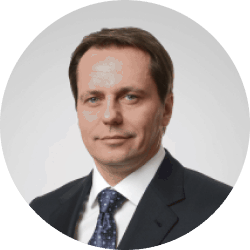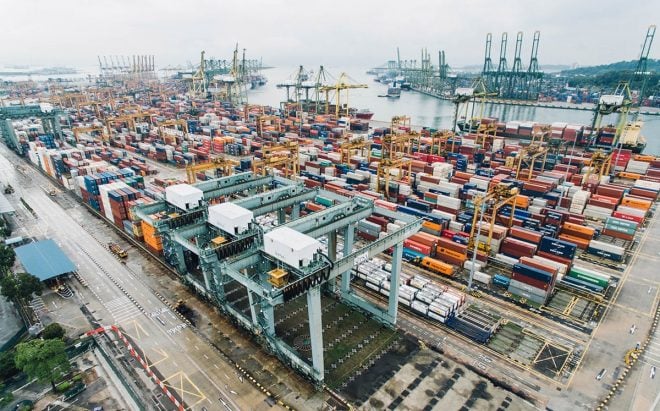Andrey Korobov: ’Almaz Group has the opportunity to occupy a significant share in the global market’

I used to believe that the cases of the Soviet industrial heritage revival had long sunk into oblivion; that large post-Soviet plants are parceled out among the owners, fully modernized and operated. We read and hear companies reporting on the launch of new facilities, the construction of state-of-art plants, and, it would seem, everyone has long forgotten about the Soviet legacy – it is easier to disassemble for scrap than to bother with it. And know what? It turned out I had been so woefully mistaken.
Having been idle for a year until November 2018, the Hydrometallurgical plant led by the investor Albert Avdolyan and his new management team not only launched the production, but in a very short period of 9 months also got the sales and distribution up and running almost all over the world. I decided to take a trip to Lermontov to see this economic miracle with my own eyes.
Almaz Group is now actively engaged in ensuring the plant operation. Once the necessary legal procedures are complete, new production facilities will be launched. The new management team was able to find something lucrative and smart in the plant’s practices. This something is called “water soluble fertilizers”, and the team now has extensive plans for the plant development. Andrey Korobov, the chairman of the board of directors of Almaz Group, of which the plant is a part, told us with pleasure and undisguised excitement of a real businessman what’s in store for the enterprise.
 – Good afternoon, Andrey Vladimirovich! We are aware of the plans of the Hydrometallurgical Plant to increase the production of water soluble fertilizers, as well as of the desire to become a market leader in this type of product in Russia. Why water soluble fertilizers? Do you see their greater potential in comparison with other types of fertilizers?
– Good afternoon, Andrey Vladimirovich! We are aware of the plans of the Hydrometallurgical Plant to increase the production of water soluble fertilizers, as well as of the desire to become a market leader in this type of product in Russia. Why water soluble fertilizers? Do you see their greater potential in comparison with other types of fertilizers?
Today there are several major fertilizer producers in Russia. Most of them mass produce granular fertilizers, which have been applied directly onto the fields for many years. Such production is often tied to its own source of raw materials, and vertical integration is clearly visible.
We stand apart from the others as it is considered really weird being in the south of Russia and not independently extracting raw materials. At the same time, not having a source of raw materials is fully compensated by our knowledge and production technologies of water soluble fertilizers. This is a new type of fertilizers, with high added value. You can call them “high-tech” in the fertilizer industry. Such fertilizers have appeared relatively recently and are gaining more and more markets mainly due to excellent quality. Despite the high price associated with the complexity and uniqueness of the technological processes, the effect that these fertilizers give is several times greater than the effect of conventional granular ones. Replacing flow process charts in the conservative agricultural sector is going very slowly, but the global market for these fertilizers is gathering pace, and moreover it is double-digit growth – more than 10-13% per year.
That is why we have bet big on water soluble fertilizers and have introduced lots of improvements over the year since the restart of the enterprise. I have every reason to say that we understand this market, having managed to regain old customers and earned a reputation for new ones.
– How much investment does Almaz Group plan over the next three years to implement this ambitious project?
– We are now talking about the amount of 5-6 billion rubles ($78-94 million). This is a program that can be implemented within the existing plant territory over the next three years. These investments will be made without global production shutdowns, which will allow us to maintain cash flow. Our key objective is to keep up momentum with clients, therefore a number of investment projects are created for specific customers. In this respect we consider ourselves very customer-oriented.
We have already achieved our main goal in producing a high-quality product that is interesting both in the domestic and foreign markets. We are currently dealing with its scaling and fine-tuning to the needs of specific customers.
– Could you please clarify for our readers how much the Hydrometallurgical Plant produces annually and what proportion water soluble fertilizers will take in this volume in absolute and relative values?
– We produce about 60 thousand tons of water soluble fertilizers per year. At the same time, the share of water soluble fertilizers in the product line is 65% – the rest is more traditional granular fertilizers, the production volume of which we intend to reduce in the coming years.

– Where does the new equipment come from, Russian manufacturers or foreign suppliers?
– Up to 70% of all equipment is produced in Russia. There are proven, reliable contractors who repair and maintain equipment well, and most importantly give guarantees. There is only one problem – too-long lead times of specialized equipment.
– How do you measure the demand for water soluble fertilizers in the Russian market and throughout the Western world? Do you think it will grow, and if so, how much?
– It is already clearly apparent that there is real potential for serious growth. There is an opportunity to grow rapidly and take a significant share in the global market. At present, the share of our export sales is about 80% (domestic 20%), although we see a development trend in the domestic market, which has begun to be traced relatively recently. This is mainly due to the development of greenhouses, which are very sensitive to their flow process charts and highly value a quality product.
We also see great growth potential in connection with the emergence of new flow process charts for the use of water soluble fertilizers in open fields: these are primarily irrigated areas, but on top of that, the use of this type of fertilizers well restores a stressed plant. For example, poorly wintered wheat can be easily restored if a small amount of water soluble fertilizer is used for spraying. And, of course, it is important to note that in arid countries only water soluble fertilizers can be used, because granules require a lot of water making them less efficient in such environment.
Since the 2000s water soluble fertilizers have greatly increased in popularity among agricultural innovators, and it is evident that conservative consumers are beginning to catch on to the product.
– Can you tell us about your positioning in the market of water soluble fertilizers? Who are your main competitors and how are you going to stand out from them?
– The Hydrometallurgical Plant produces four types of water soluble fertilizer products: monoammonium phosphate (MAP), diammonium phosphate (DAP), monopotassium phosphate and potassium sulfate. If to speak about our major competitors, only one of these four products is produced by Uralchem in Russia and anther one – by EuroChem, but at a plant in Lithuania.
Having said that, our technologies and developments allow us to improve and optimize production all the time, and most importantly, to reduce the production costs. We can also work with niche products, maximize the use of raw materials and receive by-products, which are also in demand.
We are soon planning to expand our product line with chilates and various salts, which will be brought to the standard of the products sold. Along with that, we are going to enter the food grade phosphoric acid market. This product has a high added value and a gigantic market, including both carbonated drinks and radio electronics.
– Are you planning to introduce any changes into your distribution channels to implement your strategy? Will you attract new traders or enter into new partnerships or are you going to sell products directly?
– Our strategy is simple: we focus on traders and blending factories, i.e. large enterprises that purchase our products and mix NPK. We focus on working with the distribution network and improve the quality of our products and the level of service, rather than focusing on end consumers directly, although there are such as well.
We focus on becoming customer-friendly. It is important for us to ship products in a specific timeframe agreed with the contractor, and most importantly, in the packaging that suits the counterparty.
– If you will, one more question about sales. We are witnessing a trend in the market for partnerships between large manufacturers and companies that pack and supply products for small farmers and summer residents. Have you given it a thought? Do you see potential in such a strategy?
– Two large blending enterprises, Agromaster and Buysky fertilizer plant, buy our product and make mixtures that are sold to small consumers through distribution networks, which took years to build. We are not going to launch blending facilities ourselves, for us at this stage it is important to focus on production.
– Speaking of international market, can you name the countries and regions where you expect the greatest demand and where you plan to export to?
– Of course, these are Brazil and Latin America as well as North America and Europe, namely Greece, Holland, Poland, Spain. Morocco and Algeria are also promising markets for us. A lot of products go to Africa and Australia through traders. There have also been shipments to neighboring countries, for example, to Armenia, Azerbaijan, and Kazakhstan. In general, today we supply products to more than 60 countries of the world. In terms of demand, we can say that we are already accepting orders for December batches, as all the prior batches have been sold or reserved.
– Speaking of foreign markets, you can’t help thinking about all the difficulties with logistics, customs and clearance. Trading inside the country is somehow easier anyway. How did you manage to overcome these obstacles and become a key exporter of your products? How much more challenging is it to sell internationally than in the domestic market?
– We have a well-functioning order processing and logistics system, cargo is transshipped through the Novorossiysk port. Besides, we have our own railway infrastructure and fleet. When all relations with contractors are established, then each subsequent shipment is just a mere technicality.



